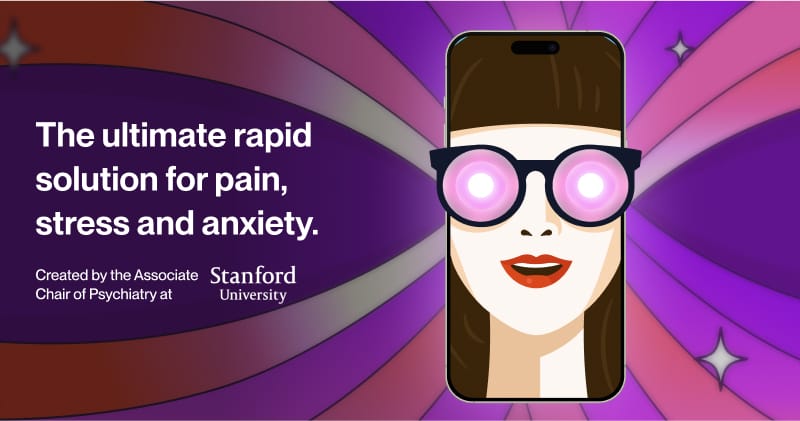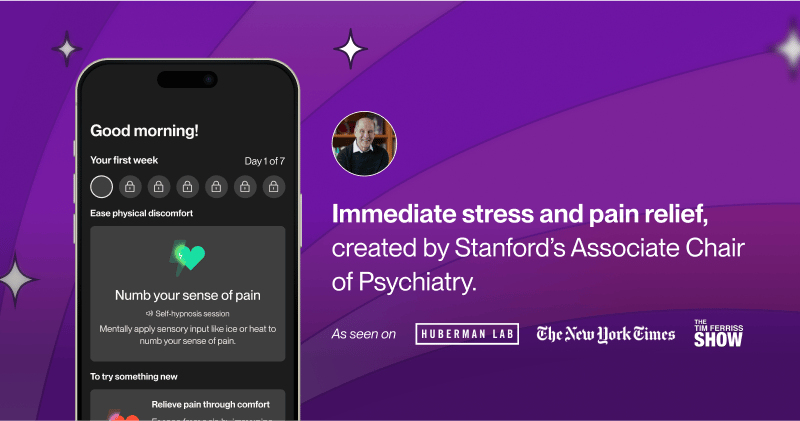
Welcome back to The Drop In, DoubleBlind’s newsletter serving up news, culture, and independent journalism about psychedelics straight to your inbox.
First, we want to acknowledge the culling that occurred on Instagram last week. Dozens of our friends and allies were victims of a brutal algorithmic reaping, with accounts suspended en masse from the app. “Disheartening” doesn’t quite grasp the existential gut-punch of realizing your very existence is prohibited in a space that claims to be “democratized.” What a farce. While there’s a lot to say on that topic (and it extends far beyond the realm of social media), if your account was deleted or suspended last week and there’s a backup page you want people to find, let us know. We’ll give you a boost in this newsletter.
Today’s lead story looks at a case study published earlier in May about how psilocybin mushrooms stimulated brain activity in a minimally conscious woman. Obviously, we needed to find out more information on the situation because the implications here are massive. You can find the story below!
We also have stories on cordyceps, raving in Ibiza, a psychedelic church lawsuit, and so much more. Enjoy the brain food and the sunshine.
In profound defiance ⚡️,
Mary Carreón
Senior Editor

Together With…
No trip required: A science-backed way to shift your state in 10 minutes.
If you deal with chronic pain, anxiety, or depression—and you’ve tried all the things—you’ll want to check out Reveri. It’s a self-hypnosis app developed by Dr. David Spiegel, Stanford’s Associate Chair of Psychiatry, and backed by decades of clinical research.
Hypnosis helps retrain your brain to better regulate pain, stress, and mood—without side effects, and without waiting weeks to feel better. Just press play and feel the shift.
In studies, hypnosis has been shown to speed up healing, ease emotional distress, and reduce physical pain. Reveri delivers this time-tested method straight to your phone. In fact, 77% of users report feeling less pain after just one 10-minute session.
Already trusted by over 1.2 million people. Try it free, and get 25% off with a money-back guarantee. Your nervous system might thank you.
Featured

A Dose of Psilocybin Sparked Brain Activity in a Minimally Conscious Woman
A barely conscious woman showed surprising brain activity and movement after psilocybin administration, raising questions about psychedelics and consciousness.
In a first-of-its-kind case study, researchers observed brain activity and spontaneous movements after administering psilocybin, the psychoactive compound in psychedelic mushrooms, to a woman in a minimally conscious state. While she didn’t regain full awareness, her brain showed signs typically seen in healthy individuals while under the influence of psychedelics.
The 41-year-old woman had been diagnosed with minimally conscious state plus (MCS+), a condition where patients show limited signs of awareness but remain largely unresponsive. The patient has been in this state for over a year after experiencing a traumatic brain injury. During that time, her caregiver (who’s also her husband) tried various interventions without success. He then administered a psilocybin tincture via a gastric tube while at home in Colorado, where psilocybin is decriminalized. He observed leg movements and then contacted researchers in Belgium to let them know what happened. A formal observation session was then organized, wherein a full 2.5-gram dose of psilocybin was given. The researchers didn’t administer the drug themselves, but they recorded EEG data before and after the session to monitor how her brain responded.
“We observed a striking increase in brain signal complexity,” said Olivia Gosseries, one of the case study’s authors, to DoubleBlind. “This is usually seen in healthy subjects [who have consumed] psychedelics, not in patients with impaired consciousness.”
That complexity, measured by something called Lempel-Ziv complexity, suggests a richer, more variable brain signal. Post-dose, her EEG also showed a drop in slower brain waves, such as delta waves, and a boost in faster ones, like gamma; these patterns are associated with the psychedelic state.
While her clinical assessments didn’t improve, her body reacted in new ways. She lifted both legs, held them aloft, and visibly shivered her right leg, a side that hadn’t moved at rest before. Her eyes and mouth opened with unusual alertness.
“The leg movements had previously been reported by the patient’s husband at lower doses of psilocybin, so their reoccurrence was anticipated,” Gosseries said. “However, given that these were spontaneous and unprompted movements, they cannot be interpreted as definitive evidence of increased consciousness.”
Gosseries believes the psilocybin may have induced what’s known as a disconnected state of consciousness. “Psilocybin increased brain signal complexity, which may parallel an increase in the richness of internal experience,” she said. “However, since we did not observe improved behavioral signs of consciousness at the bedside, we think that she may have entered a disconnected state of consciousness, similar to dreaming or a psychedelic ‘trip.’”
One curious outcome was that before the dose, the woman grimaced at a pain stimulus. Afterward, there was no response. “We noticed a clear absence of pain responses after psilocybin,” Gosseries said. “This could suggest an analgesic effect.”
The woman had only tried psilocybin once prior to her injury. Could that earlier exposure have influenced her response?
“There is currently no empirical evidence demonstrating that prior exposure to psilocybin creates a form of ‘neurobiological recognition’ that would influence responses after severe brain injury,” Gosseries said. “While receptor-level adaptations such as desensitization or upregulation are known to occur with repeated exposure to some psychoactive substances, these mechanisms have not been clearly established for psilocybin, particularly after a single or limited number of exposures.”
This wasn’t a clinical trial, so there was no placebo control. “We did not design the experiment as this was an observational study,” Gosseries said. “Like all the interventions we propose, none of our patients are able to provide consent themselves. Together with the families, we carefully consider what might be in the patient’s best interest, based also on their prior wishes.”
It’s unclear whether her movements reflected a psychedelic experience or if they were a result of neurological noise. While more research is needed, the implications of this case study are staggering.

Sneak Peak
Plant Medicine, Pig-Tiled Caves, and the Polish Artist Who Painted a Psychedelic War-Torn Apocalypse
This Friday, we’re diving into the visionary life of artist Stanislaw Ignacy Witkiewicz — a.k.a. Witkacy — who painted melting faces and smoked-out skies in the 1920s under the influence of mescaline, paranoia, and existential dread.
Fueled by loss, war, and a fair amount of mescaline, Witkacy documented his drug experiences, turned them into art, and built an entire surrealist legacy on the edge of collapse. The story digs into his brilliant psychedelic self-portraits, his love-hate affair with narcotics, and what it meant to paint the soul of Poland as the world burned around him.
Upgrade your subscription to get it in your inbox Friday morning.
& More Must-Reads
🪩 Ibiza draws seekers, dancers, and psychonauts alike, but the island’s culture goes deeper than the clichés. Whether you’re partaking in extracurriculars, there’s a way to move through its rave temples and retreat spaces with intention. Read about it here.
🍄 Can shrooms mess with your sleep, or actually help you snooze with ease? We asked scientists and therapists what psilocybin does to your brain after dark. Check it out here.
🪸 Cordyceps has long been used for stamina, breath, and focus, but not all supplements are created equal. We asked herbalists how to spot the good stuff and when to actually take it. Read about it here.
🍊 Does orange juice actually affect your trip, or is it just psychedelic lore? We dug into the science (and the myth) behind this ritual. Read about it here.

DoubleBlind Digs
Can microdosing psychedelics help with chronic headaches? The Microdosing Collective is launching a first-of-its-kind study to find out—and they’re looking for participants now. Learn more here.
Join Chacruna on Wednesday, May 28, 2025, at 12 PM PT for a deep dive into Navigating Censorship, Ethics, and the Market. Featuring leaders from Synergetic Press, DoubleBlind, and the Journal of Psychedelic Studies, this free, expert-led conversation explores the future of psychedelic media and why thoughtful publishing matters more than ever. Find out more here.
The Shulgin Foundation and Students for Sensible Drug Policy (SSDP) are hosting a critical online discussion on May 27 on the DEA’s push to schedule DOI and DOC, two Shulgin-synthesized compounds vital to psychedelic research. This case could reshape scientific access for decades to come. Attend the discussion here.
Pain, anxiety, or depression? Try the 10-minute trick. Reveri is a Stanford-developed hypnosis app that works in 10 minutes—no side effects, just science. Use the code DOUBLEBLIND to try it free + get 25% off a plan.
*We may make a small commission from purchases using this link. Proceeds through advertising help to fund our independent journalism.
Together with Reveri
If you want to feel better in minutes, try this self-hypnosis app from Stanford’s top hypnosis expert.
Whether it’s pain, stress, or depression, Reveri uses clinically proven techniques to alleviate it fast. Recommended by Andrew Huberman, Tim Ferriss, the NY Times and BBC.
✨ Backed by 45+ years of research
🧠 Tap into the power of your subconscious (no medicine cabinet required)
⏱ Most folks feel better in 10 minutes or less
📱 Streamlined, science-backed, and fits in your pocket
Use the code DOUBLEBLIND to try it free + get 25% off a plan.

Around the Web
Deva Collective founder Melissa Whippo is done waiting for women’s health to catch up. She’s launching a psychedelic study on perimenopause—and challenging the stigma one mescaline microdose at a time. Read Oprah Daily.
In a groundbreaking study from Johns Hopkins and NYU, dozens of clergy—from rabbis to roshis—took psilocybin in search of the divine. What they found could rewrite the relationship between psychedelics and organized religion. Read the New Yorker.
Rosemary Woodruff Leary was more than Timothy Leary’s wife. She was a guiding force of the psychedelic underground! The Acid Queen uncovers her untold story of rebellion, ritual, and radical transformation. Read the story here.
How was today's Drop In?
💌 If you loved this email, forward it to a psychonaut in your life.




